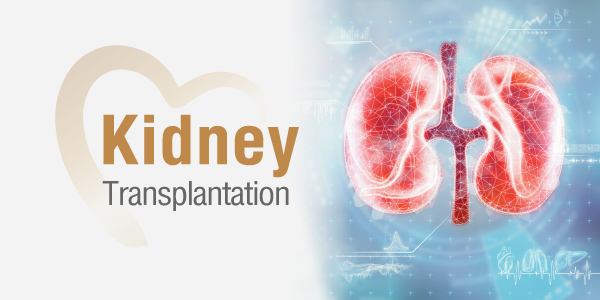
Kidney Transplant & AV Fistula Surgery
Understanding Kidney Transplant
A kidney transplant is a surgical procedure to place a healthy kidney from a living or deceased donor into a person whose kidneys no longer function properly. This life-saving procedure is often recommended for patients with end-stage renal disease (ESRD) or chronic kidney disease (CKD) when other treatments, such as dialysis, are not sufficient.
Benefits of Kidney Transplant
- Improved Quality of Life: Many patients experience a significant improvement in their overall health and well-being.
- Greater Freedom: Unlike dialysis, which requires regular sessions, a kidney transplant allows for a more normal lifestyle.
- Increased Longevity: Transplanted kidneys often function better and last longer than dialysis treatments, potentially extending life expectancy.
The Kidney Transplant Process
Evaluation and Preparation
- Medical Evaluation: Comprehensive medical tests to ensure the patient is a suitable candidate for a transplant.
- Donor Matching: Finding a compatible donor through tissue typing and cross-matching to reduce the risk of rejection.
- Pre-Transplant Preparation: Optimizing the patient’s health through medications and lifestyle adjustments to ensure the best possible outcome.
Surgery
- Procedure: The donor kidney is placed in the lower abdomen, and the blood vessels and ureter are connected to the patient’s own blood vessels and bladder.
- Recovery: Post-operative care includes monitoring for signs of rejection, infection, and other complications, as well as adjusting immunosuppressive medications.
Understanding AV Fistula Surgery
An arteriovenous (AV) fistula is a connection created between an artery and a vein, typically in the arm, for hemodialysis access in patients with severe kidney disease. AV fistula surgery is considered the best long-term option for dialysis access due to its durability and lower risk of complications.
Benefits of AV Fistula Surgery
- Long-Lasting Access: AV fistulas typically last longer than other types of dialysis access, such as catheters or grafts.
- Reduced Infection Risk: Lower risk of infection compared to central venous catheters.
- Better Dialysis Efficiency: Provides better blood flow for dialysis, leading to more effective treatments.
The AV Fistula Procedure
Pre-Surgical Evaluation
- Vascular Mapping: Ultrasound imaging to identify the best blood vessels for creating the fistula.
- Health Assessment: Ensuring the patient is in good health for surgery and can maintain the fistula post-operatively.
Surgery
- Procedure: The surgeon connects an artery to a vein, usually in the forearm or upper arm, allowing the vein to grow larger and stronger for dialysis access.
- Recovery: Post-operative care includes monitoring for proper maturation of the fistula and preventing complications such as infection or clotting.
Why Choose Us?
- Expertise: Dr. Santosh Agrawal has extensive experience in performing kidney transplants and AV fistula surgeries, with a high success rate.
- Comprehensive Care: From initial evaluation to post-operative follow-up, we provide complete care and support throughout the treatment process.
- Advanced Technology: Our clinic is equipped with state-of-the-art technology and facilities to ensure the best possible outcomes for our patients.
- Patient-Centered Approach: We prioritize patient comfort and safety, offering personalized care plans tailored to each individual’s needs.
If you are considering a kidney transplant or need an AV fistula for dialysis access, please contact us to schedule a consultation. We are dedicated to providing the highest standard of care to help you achieve optimal health and well-being.










